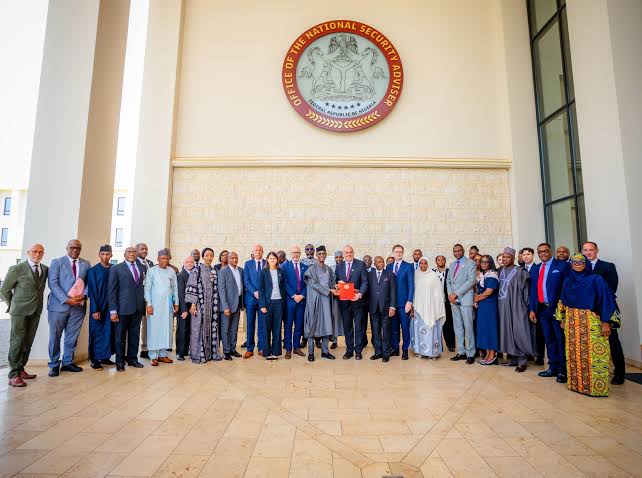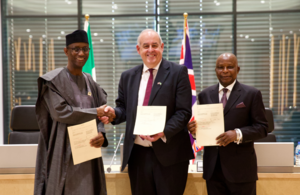The public will be better protected from fraud as law enforcement collaboration between the UK and Nigeria is stepped up under a new joint fraud action plan agreed between the two countries.
The partnership will provide increased protection for victims by focusing on earlier detection of threats, faster law enforcement intervention, and the disruption of cross-border criminal networks before they can cause harm. It will also support stronger systems to help prevent people from falling victim to fraud in the first place.
Key elements of the joint action plan include:
information sharing and operational coordination, including the potential for joint law enforcement operations involving the UK’s National Crime Agency (NCA) and Nigeria’s Office of the National Security Adviser
development and strengthening of national fraud strategies through the exchange of best practice, frameworks, and lessons learned, along with potential joint public awareness campaigns to deter fraudsters is
exploration of collaboration between financial, online, and telecoms regulators and industry bodies in both countries to help close loopholes exploited by criminals
sharing insights on the misuse of financial systems, with the potential for joint studies and research into emerging threats
identifying training needs and delivering capacity-building initiatives, starting with targeted training for Nigerian prosecutors by the UK’s Serious Fraud Office, with further programmes planned, subject to funding
70% of fraud cases involve an international element. Today’s agreement forms part of a wider effort to build a unified international response to fraud – an issue continuing to harm individuals, undermine economies, and threaten national security.

The UK’s Minister for Fraud, Lord Hanson, has been in Abuja this week for meetings with Nigerian counterparts and other strategic partners. Lord Hanson, Nigeria’s Attorney General and Minister of Justice, Chief Lateef Olasunkanmi Fagbemi, and National Security Adviser Nuhu Ribadu, signed a memorandum of understanding (MoU) and agreed the action plan today, formalising a commitment to deeper collaboration.
Minister for Fraud, Lord Hanson, said:
“Fraud ruins lives. It strips people of their savings, their confidence, and their sense of security. The fact so many of these crimes now originate overseas makes our international partnerships more important than ever.
“Our new agreement with Nigeria will help us better identify and stop fraud before it happens, crack down on criminals who exploit our systems, and ultimately protect the public from the devastating impact of fraud.
“My meetings in Abuja have been hugely constructive, giving us the opportunity to align our efforts and take meaningful action to prevent further harm. I’m proud to have signed this agreement, which sets both our nations firmly on the path to a safer and more resilient future.”
As one of the world’s largest and fastest growing economies, the UK and Nigeria recognise the shared threat fraud poses to their prosperity and long-term stability.
According to the Crime Survey for England and Wales, fraud is the most commonly-experienced crime in the UK, with more than 1 in 15 adults affected each year. In the year ending December 2024, an estimated 4.1 million incidents were recorded – almost 43% of all incidents recorded by the survey. The societal harm is also severe, with fraud against individuals in England and Wales alone estimated to cost £6.8 billion annually in 2019 to 2020.
Beyond the financial damage, the emotional and psychological toll on victims is devastating. Many report lasting emotional harm, while increasingly sophisticated criminals are using emerging technologies, including artificial intelligence, to design realistic scams difficult to detect.
Financially motivated sexual extortion (FMSE) is a particularly cruel form of exploitation, with many victims tragically taking their own lives due to these scams. The NCA is committed to raising awareness, providing targeted support to victims, and improving the investigation and prosecution of offenders, both in the UK and internationally.
National Security Adviser, Nuhu Ribadu, said:
“Building on the foundation of the past successes, we must confront crime with greater seriousness, deepen collaboration across all fronts; addressing enablers, supporting victims, and pursuing perpetrators, and sustain an unyielding commitment to protect our societies.”
Deputy Director of Fraud at the NCA, Nick Sharpe, said:

